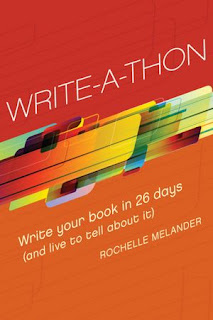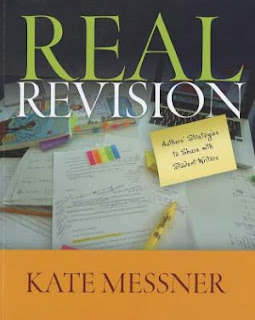Writers have tools, too.
Here are the ones I turn to when I write a book . . .
1. Before I begin, I remind myself about story structure and character arcs with Robert McKee's excellent STORY: SUBSTANCE, STRUCTURE, STYLE AND PRINCIPLES OF SCREENWRITING. (I found this book so helpful that I made pages of notes and refer to the notes now instead of the original hefty volume.)
2. Early in the process, I create a synopsis -- a map, a blueprint, a guide -- that helps me navigate from the beginning through the murky middle to the inevitable ending. For that, I need to ask and answer hard questions about my intentions.
I find those handy dandy questions in Appendix A: Outlining Your Novel at the back of Donald Maass' WRITING THE BREAKOUT NOVEL WORKBOOK. (I enjoyed his WRITING THE BREAKOUT NOVEL, too. But I can summarize the main point of that book in three words: Work incredibly hard.)
I find Cheryl Klein's SECOND SIGHT: AN EDITOR'S TALKS ON WRITING, REVISING AND PUBLISHING BOOKS FOR CHILDREN AND YOUNG ADULTS helpful at this point. This book has lots of useful exercises to help reveal your characters and story in a meaningful way.
Walter Dean Myer's has a great book for young writers called JUST WRITE HERE'S HOW. In this book, Myer's offers a six-box system for organizing your novel or short story. In the back are tips for writers, and I found his wisdom applicable for writers of any age.
3. If I get muddled in the middle of a novel, I'll pull out Rochelle Melander's WRITE-A-THON: WRITE YOUR BOOK IN 26 DAYS (AND LIVE TO TELL ABOUT IT). Besides the practical advice throughout, there are perfect quotes at the beginning of each short chapter.
4. While writing, if my character's keep smiling or gasping or their stomachs keep knotting or twisting, I grab THE EMOTION THESAURUS: A WRITER'S GUIDE TO CHARACTER EXPRESSION to find fresh ways to show how they are feeling. Thanks to authors Angela Ackerman and Becca Puglisi for this invaluable, easy-to-navigate guide.
I can't wait for Ackerman and Puglisi to come out with their guide for creating characters, which I think is next on their list. (Places hands on hips, taps foot, clicks fingernails against table, lets out a loud breath, glances repeatedly at clock and crosses arms . . . Oh, thank you page 94!)
5. When the draft is done and revisions are in order, I'll revisit Cheryl Klein's SECOND SIGHT and I'll read Kate Messner's REAL REVISION: AUTHORS' STRATEGIES TO SHARE WITH STUDENT WRITERS. Besides great ideas, charts and examples, there are oodles of interviews with authors like Jane Yolen, Tom AngleBerger, Cynthia Lord, Kathi Appelt, me and many others. Again, I found much of the advice and information applicable for writers of any age.
In addition to these great tools, I have an accountability buddy. Each morning, my friend and I exchange a quick email sharing our day's writing goals. We check in at day's end to share our progress and encourage each other.
What are YOUR favorite writing tools?












11 comments:
Oooh what fun! We share at least one: Cheryl Klein's wonderful, wonderful Second Sight. And the Bookshelf Muse (although I'm still reading it on line). My list:
*Scrivener Program (lurve)
*A rough synopsis based on Joyce Sweeney's plot clock
*A reservation for the next SCBWI Florida conference
*A goal to finish a draft during NaNoWriMo
*A good friend to talk me down and cheer me up
*A spouse who reads everything and loves me unconditionally. That just about does it, I think.
Donna, I'm so glad you find the Emotion Thesaurus helpful! Save The Cat is a resource I can't write without. And post-its. Lots of post-its :)
My list would include most of these! (Others only because I haven't read them yet...) But tell me -- what is the best tool to quash the internal critic? I need a flamethrower for that dude...
Gail, LOVE your list, especially the last item. I'll be joining you at the SCBWI Florida conference and for the NaNoWriMo challenge.
Becca, I will definitely get Save the Cat. Many people have mentioned it. In fact, when I get it, I will mark the best info with Post-it notes.
Jennifer, here's the secret: While writing, take a few moments to imagine you've won the Newbery Medal and are giving your speech. It confuses the heck out of your internal critic!
Oooh! Great list. I've perused most of them and own the Emotion Thesaurus, but I think it's time for a little book shopping. Thanks for the great suggestions!
Would love a peak at your STORY synopsis (notes). I do the same thing, but then I get caught up with rereading too much of his book--BIG EXCUSE NOT TO WRITE--sooooo, send me a copy of your crib sheets....plllleases!
@Becca: I also have Save the Cat at my right hand while I'm plotting.
I'm in DC, headed for Politics and Prose bookstore this morning. Now I have a shopping list. Thank you, thank you.
Priceless recommendations! I think I need to add a few of these to my Christmas list.
Awesome info. Very insightful. Thanks for sharing.
Thanks for the great comments, everyone. Hope some of these resources prove helpful.
Post a Comment